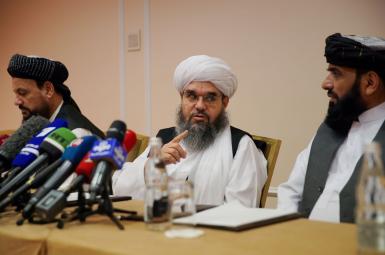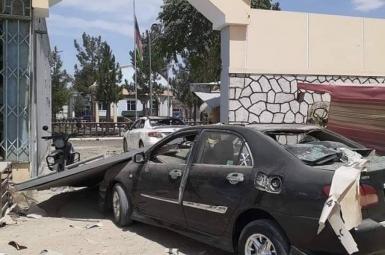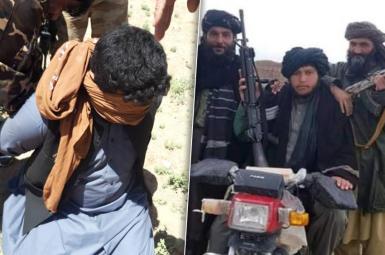
The Root of the Taliban’s Presence in Afghanistan
The emergence of social phenomena, such as the Taliban movement, comes from multiple economic, social and cultural reasons. None has emerged out of the thin air and they could be traced back within a historical context which gave rise to the surge of such ideology.
On the other side, it takes a lot of time and endeavors to eliminate or even weaken such phenomena. There are periods during which they disappear, but in a suitable environment, they reappear and cause problems for the community’s peace and prosperity.
I will outline below the roots of the attraction of Taliban’s way of thinking in Afghanistan, which gives permission to its adherents to attack innocent people, execute suicide operations, and destroy the country’s infrastructure.
Poverty, Destitution, and Unemployment
Poverty is one of the main causes of tension and conflict. It is attributed to Lenin saying that “worker is essentially revolutionary since he has nothing to lose in a revolution”. Wealth and property make people more conservative. Even the petit wealthy dislike chaos and disorder where their capital would be destroyed.
On the other hand, the poor are more prone to be attracted by criminal or ideological groups; it is a means to make a living for them. It has been noted that the reason for most of the fighters who joined the Taliban was to have regular earning. Destitution prevents our children from education and hence future employment. The more this vicious circle of unemployment and disorder continues, the worse the situation gets for everyone.
Illiteracy
Education, knowledge, and schooling are ways to lower the poverty rates and prepare individuals for employment and to improve social participation.
Illiteracy has a direct correlation with poverty and unemployment. They all create an atmosphere where fighter groups can recruit. Although there are some educated members within the ranks of Taliban and the likes, their number is very limited, and they have been through a different system of education which drove them toward violence and radicalism.
Combative Educational System
The educational system in Afghanistan, be it in the schools or seminaries, is mostly based on ideology, national pride, and combativeness. This, unfortunately, forms the dominant narrative in school curriculums. It encourages students to think of combating, conquering, heroism, and honor rather than innovation, creation, production, and entrepreneurship.
Moreover, the education system insists on students memorizing books. Not only does it prevent students from growing critical and evaluative capabilities, but it also makes them unimaginative and narrow-minded.
This educational system provides a fertile ground for xenophobia and radicalism to be exploited by the likes of the Taliban.
Monistic Reading of Religion
As discussed above, the educational system brings up students ignorant about diversity and difference of other perspectives. Moreover, the system injects a negative and aggressive approach toward any other readings of religion except what is officially endorsed.
This being added to their teachings about honor, combat, and conquer provides an atmosphere where there is an ideological commitment to take action and put the world back on, what they believe, the right path.
Tribal and Rural Population
Human experience shows that urban life brings about peace and security. Most developed countries are comprised of a big urban population with a small portion living in rural areas. Professional opportunities, stability, and safety make cities more attractive.
Rural areas, on the other hand, cannot offer such opportunities. Agriculture is the main profession. Droughts damage the business regularly. They are scarcely distributed around the country and for the time being, it is impossible to guarantee their security.
What is more, the population of villages is mostly members of tribes. Tribes have many disagreements and conflicts with one another. The judicial system does not apply to their disputes. Revenge and force are the main resolution methods during an inter-tribal dispute.
All these let the combative groups infiltrate rural areas and recruit relying on tribal issues. When a member of a village or a tribe joins these groups, it will affect life for all other members.
Insecurity and Instability
Despite the fact that insecurity is an effect and not a cause, it could play an important role to direct people to combative groups. Anyone can join the armed combative groups in the absence of law and order.
Political stability usually paves the way for progress and development. All developed states have passed a long period of political stability. The more falls of rulers, revolutions or other sudden forms of change are probable, the easier Taliban’s ideology can spread.
No Trade and Tourism
Insecurity and instability destroy any possibility for trade or tourism in Afghanistan. Were there peace and safety, the resident of Qandahar could travel to Badghis, the resident of Badakhshan could trade commodities from Nimruz, etc.
This would connect the nation and peoples together. It would bridge between the tribal, ethnic and linguistic differences and would reduce suspicion and xenophobia.
No inter-state transportation
Trade and tourism need an orderly system of transportation. There is no network of public transport in the country. This has locked people, physically and mentally, in their villages or tribes.
Intolerance
The culture of intolerance, on the one side, and the culture of honour, combativeness, and audacity, on the other, have encouraged radicalism. This culture motivates one to take actions on their own and to spread the promised justice. It has always led to disorder and chaos, and it has created the best opportunity for radical groups to recruit.
Thus, the attraction of the Taliban’s ideology has various social, cultural, economic and political reasons. Without considering a holistic approach, the crisis in Afghanistan will not be surmounted.









